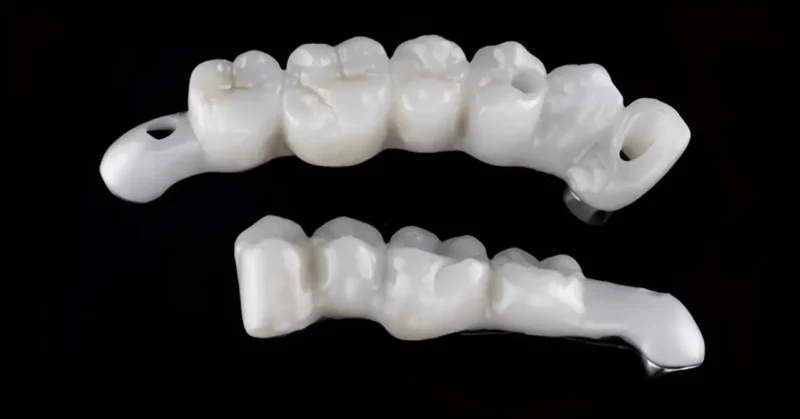
We always consider titanium stainless steel in capacitative use such as industrial, commercial, or even consumer products. Both titanium and stainless steel have significant features that expand their scope of applications in numerous industries. These industries can be aerospace and medical industries. Besides this, it is difficult for customers to choose between titanium and stainless steel. In this article, we will look at what both titanium and stainless steel are, their advantages and disadvantages and assist in helping you select which is the better material for your project.
How Would You Define Titanium?
Titanium is a light metal with a high strength-to-weight ratio and significant corrosion resistance. It is mainly applied when extreme mechanical performance in conditions that are hostile to components is a must. Besides this, it is typically used in the aerospace industry, medical applications, and military use. Titanium owes many of its characteristics to the fact that it is extremely fair and, more costly to forge than steel.

How Would You Define Stainless Steel?
Stainless steel, therefore, is a hard and anticorrosive metal that results from mixing chromium with iron. Here the chromium covers the iron’s surface with an oxide coating. They are commonly incorporated in construction, auto making, refrigerators, and other utilities, and in medical equipment. Besides this, stainless steel has become popular in industries and the local market because of its high strength, corrosion, and polished surface.

Commonly Used Titanium Alloys
This table discusses Titanium alloys along with their applications in different industries.
| Alloy Name | Properties | Applications |
| Ti-6Al-4V | It shoes high-strength, lightweight, and corrosion-resistant | Aerospace |
| Ti-6Al-7Nb | Quite biocompatible, high strength, and highly corrosion-resistant | Medical implants |
| Ti-3Al-2.5V | It is corrosion-resistant, lightweight, and weldable | Marine |
| Ti-6242 | It has high strength at high temperatures | High-temperature |
| Grade 2 | Corrosion-resistant, ductile, easy to machine | General-purpose |
Commonly Used Stainless Steel Alloys
Let’s discuss stainless steel alloys and their applications in different industries.
| Alloy Name | Properties | Applications |
| 304 | It offers corrosion-resistant, formable, and non-magnetic. | General-purpose |
| 316 | High corrosion resistance, tough, non-magnetic | Marine-grade |
| 430 | It is heat-resistant, magnetic, and cost-effective | Ferritic |
| 2205 | Offently offers high strength & excellent corrosion resistance | Duplex |
| 410 | It is hard, wear-resistant, and magnetic | Martensitic |
Nine Main Comparisons Between Titanium vs Stainless Steel
So, here are nine major comparisons between Titanium vs. Stainless steel;

1. Strength-to-Weight Ratio:
If we particularly talk about the strength–to–weight ratio, titanium generally offers a better strength-to-weight ratio than stainless steel. So, we can achieve similar strength levels with titanium but with a much lower weight. So, the material is suitable for areas where weight is an issue. This may include aircraft and sporting equipment.
2. Corrosion Resistance:
Titanium resists corrosion significantly and is especially used in high environments like marine and chemical. It has a natural oxide coating that does not allow additional oxidation, and that is why titanium is ideal for chemical processing and marine use. However, what makes stainless steel to be resistant to corrosion can count against it in highly acidic or salty environments.
3. Weight
Titanium is about 40 percent lighter and this large weight difference may summarize noticeable benefits in uses where weight matters. These may include automotive and aerospace applications.
4. Hardness
In general, Stainless steel is harder and scratches are less likely to appear on it than on titanium. This hardness is useful in such applications which involve rubbing or rather direct contact with the surfaces. However, the strength increases the hardness of the stainless steel, and this makes stainless steel brittle in some forms, especially at low temperatures.
5. Cost
Titanium is costlier than stainless steel due to the extraction and processing of titanium to the necessary standard. Besides this, titanium involves a time-consuming method and also consumes a lot of energy. Therefore, although providing high-performance characteristics, the increased price may offer a stoppage for the extensive application of titanium.
6. Thermal Conductivity
The thermal conductivity of stainless steel is higher than in the case of titanium. This shows that stainless steel has higher tropical properties; it is, therefore, suitable for heat-exchanging equipment, kitchen utensils, and some industrial uses.
7. Magnetism
Stainless steel cannot be magnetic in all forms but only in the ferritic and martensite kind. On the other hand, titanium possesses no magnetic characteristics. So, this might be an added advantage in particular use in situations where magnetism may hamper the proper functioning of equipment such as in hospitals and electronic gadgets.
8. Ductility
Compared to titanium stainless steel is relatively more ductile and malleable causing the option to be more manageable in the forming process. This property is useful in applications that require the formation of intricate structures, i.e. automobile parts and home utensils.
9. Biocompatibility
Biocompatibility is best in titanium, making it the best material to use in medical implants and devices. It easily combines with human tissue whose rejection reduces the need for replacement. So, it is suitable for dental fixtures, orthopedic devices, and surgical instruments. On the other hand, although some types of stainless steel can be applied to medicine, they do not possess as high a biocompatibility.
Let’s summarize this difference in a table.
| Property | Titanium | Stainless Steel |
| Strength-to-Weight Ratio | Superior | Lower |
| Weight | 40 percent less than stainless steel | Heavier |
| Hardness | Lower hardness | Higher hardness |
| Cost | Higher (complex extraction) | Lower |
| Thermal Conductivity | Lower | Better |
| Magnetism | Non-magnetic | Magnetic (in some forms) |
| Ductility | Less ductile | More ductile |
| Biocompatibility | High | Moderate |
| Corrosion-Resistance | Best | Moderate |
Advantages of Titanium
1.High strength & low weight.
2.High corrosion resistance.
3.Excellent biocompatibility.
4.Non-magnetic.
5.Has heat-resistant properties Used in applications where high temperatures are likely to be encountered.
Limitations of Titanium
Let’s discuss some of the drawbacks of Titanium;
1.Difficult and costly to both manufacture and to have machined.
2.Less hard compared to Stainless steel.
3.Poor thermal conductivity.
4.Restricted accessibility and alloys.
5.Is capable of withstanding high stress while gall (friction-induced wear).
Advantages of Stainless Steel
The following are the advantages of stainless steel;

- Cheap and readily available.
- Good corrosion behavior in most aggressive situations.
- Easy to machine and weld.
- A special application note, namely high durableness and very good scratch resistance.
- A large selection of alloys is based on the purpose of their use.
Limitations of Stainless Steel
Here are some limitations of stainless steel;
- Heavier than titanium.
- Lower strength-to-weight ratio than light gauge steel framing.
- Lower durability in case of great corrosive conditions such as those of seawater.
- Quite good for alloys that may not be suitable for a few applications.
- Rather susceptible to staining and tarnishing if exposed to the specific circumstances.
Applications of Titanium
Here are some industrial uses of Titanium

- Aerospace components.
- Prosthetic devices (for example a hip replacement).
- Military equipment.
- Marine structures.
- Chemical and process equipment.
Applications of Stainless Steel
We can use stainless steel;

- Kitchen appliances.
- Automotive exhaust systems.
- Construction materials.
- Medical instruments.
- Industrial piping and valves.
Physical Properties of Titanium Vs Stainless Steel
| Property | Titanium | Stainless Steel |
| Density | 4.51 g/cm³ | 7.85 g/cm³ |
| Tensile Strength | 434 MPa (Grade 2) | 515 MPa |
| Melting Point | 1,668°C | 1,510°C |
| Thermal Conductivity | 21.9 W/m·K | 16.2 W/m·K |
| Modulus of Elasticity | 116 GPa | 190–210 GPa |
Some Chemical Properties of Titanium Vs Stainless Steel
The following are some of the chemical properties of Titanium vs Stainless steel
| Property | Titanium | Stainless Steel |
| Primary Composition | Titanium (Ti) | Iron (Fe), Chromium (Cr) |
| Corrosion Resistance | High | Moderate (depends on the alloy) |
| Oxidation | Forms a protective oxide layer | Forms passive chromium oxide layer |
| Reactivity | Reactive in some acids | Stable in most acids and bases |
| Biocompatibility | Excellent | Good (but can corrode in extreme conditions) |
When to Choose Titanium?
Choose titanium for the following reasons;

- Weight Reduction: Titanium re preferable to steel if weight reduction is the key factor in your application.
- Corrosion Resistance: In such circumstances, titanium provides the finest protection against corrosion which is highly beneficial in marine and chemical industries.
- Biocompatibility: It is preferred in medical appliances like implants because it has high compatibility with the human body.
- Extreme Environments: Compared with stainless steel, it is found that titanium is highly resistant to heat and is much more resistant to corrosion environments.
When to Choose Stainless Steel?
Here are some points where choosing stainless steel is a smart choice;
- Cost Efficiency: Apparently, stainless steel has a better chance of being more popular and affordable in most places than aluminum.
- Durability and Longevity: Stainless steel is appropriate for long-term applications due to its initially high hardness and high SR value.
- Ease of Machining and Fabrication: It is easier to process stainless steel materials to the required shape and it does not require refined technologies for welding.
Rely on Prototeque as Your Best Partner
At Prototeque, our company deals with accurate CNC machining services for all your production requirements. No matter if you need to make parts from titanium or stainless steel we will assist you in converting your ideas into perfect and effective products. Our professional team gives the highest levels of machining solutions for complicated materials with highly accurate and innovative machined parts. Get your quote today.
Conclusion
In conclusion, titanium vs stainless steel, both metals, have tremendous benefits but they are peculiar in their utilization. Whereas titanium has high performance and is light, stainless steel has great general uses and is cheaper than most metals. Knowing the nature and applications of each metal shall enable this entity to make the proper selection for a particular project. So, we at Prototeque help with your manufacturing needs using advanced CNC machining services. So, if you choose titanium or stainless steel, our team and state-of-the-art equipment will make it possible.
FAQs
Q1. Is titanium more costlier than stainless steel?
Yes, titanium is more costlier. This is mainly due to metallic compound extraction and machining capability.
Q2. Can titanium corrode?
Titanium is one of the most corrosion-resistant materials there is, particularly in conditions, i.e. marine.
Q3. Is stainless steel magnetic?
Stainless steel has ferromagnetic properties that change with alloys. e.g. stainless steel type 410 has ferromagnetic properties. However, stainless steel 304 is not magnetic.
Q4. Can we weld titanium?
Yes, we can weld titanium, but the contamination chances may increase.
Q5. How would you compare stainless steel with titanium?
We can compare them based on differences in their density, i.e. titanium is less dense and lighter than stainless steel.
Q6. Does titanium last longer than stainless steel?
Yes, stainless steel offers more benefits w.r.t hardness than titanium but the stainless steel holds better performance in extreme conditions.
